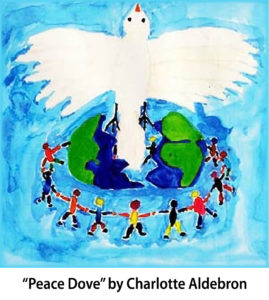Leading the Way to a Harmonious and Enjoyable Season
Eric Beckman, Barnes & Conti Global Director, and co-developer of Conflict: From Prevention to Resolution
 The holiday season, with its themes of light, hope, peace on earth, and goodwill is meant to bring out the best in people. Unfortunately, the holidays also present many opportunities for stress, anxiety, and high expectations. It is during these times we can exercise leadership to help bring out the best in ourselves and others in moving from conflict to harmony.
The holiday season, with its themes of light, hope, peace on earth, and goodwill is meant to bring out the best in people. Unfortunately, the holidays also present many opportunities for stress, anxiety, and high expectations. It is during these times we can exercise leadership to help bring out the best in ourselves and others in moving from conflict to harmony.
Sometimes, conflicting expectations color our social, cultural, and family gatherings. Not everyone perceives them in the same way, which can lead to disappointment, frustration, and anger. How we prepare and respond to situations can either smooth or inflame them.
We might choose to do nothing in the face of conflict, but even that comes with its own risks and cost. If you suspect problems or issues are likely to surface, ask yourself what it might cost to ignore them. We are not only responsible for what we choose to do, but also that which we choose not to do.
Before you gather with others for holiday get-togethers, see if you can answer the question: “What do I really want to happen?”
Are you excited to catch-up with family and friends, and would just like to avoid any major issues? Maybe you want to get through an evening without listening to people argue about politics or religion. Perhaps you only want to figure out how to keep the kids away from that one relative who always seems to drink too much.
Most conflicts begin as a set of expectations. They may be positive expectations that become unmet, or they may be negative expectations that we help to confirm. If negative conflict should arise, try to remember that we only control our own actions; we really can’t control anyone else.
If you do see the potential for problems, you can make a choice ahead of time about how to deal with them and, if possible, enlist the help of others before you need it.
One useful way to phrase your ideal outcome is to use the format: “Wouldn’t it be great if…?” (WIBGI). Come up with a few and pick the most important or relevant WIBGI to use. Then, ask a few different “How can we…?” (HCW) questions that help lead to your intended outcome. Ask these HCW questions in a way that is optimistic, broadly inclusive, and considers the possible needs or desires of others who might be affected.
Capturing your WIBGI and HCW questions allows you to formulate a plan to achieve the outcomes you desire. Get the help of another person for additional ideas and perspective.
We all lead every day by the actions we take when we interact with others. When we are upset, it upsets others. When we are happy and content, others are influenced positively. Try to remain consciously in the present so you can help make the event enjoyable and low-stress.
In short, help yourself by helping others do the things that will make all of your holiday experiences go more smoothly. Here are some specific suggestions to keep in mind:
- Lead by example.
- Set realistic expectations.
- Enlist others to help in advance.
- Thank others openly for their contributions.
- Gently and privately remind people of any prior agreements made about behavior.
- Remind yourself to have a good time, or at least the best time you can.


Leave a Reply
You must be logged in to post a comment.